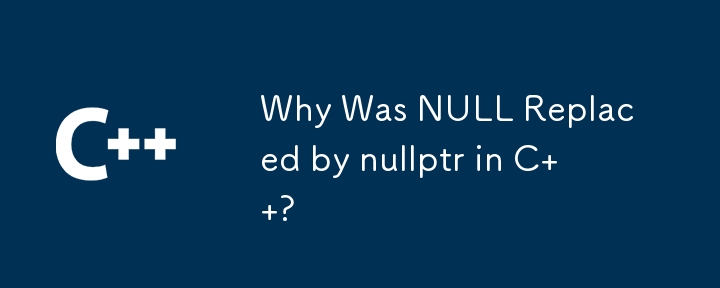
Why was NULL Replaced with nullptr in C ?
In C , the NULL macro was used to represent a null pointer. However, in C 0x, NULL was replaced by a new keyword, nullptr. This change was made for several reasons:
-
Improved Type Safety: NULL can be implicitly converted to any pointer type. This can lead to ambiguity when calling overloaded functions. For instance, the following function overload resolution is ambiguous:
void f(int);
void f(foo *);
Copy after login
Calling f(NULL) could match either overload, depending on the context.
-
Improved Compile-Time Error Checking: nullptr has a type of std::nullptr_t, which is distinct from other types. This allows the compiler to detect errors early on when using nullptr in incorrect contexts, such as assigning a nullptr to a non-pointer variable.
-
Consistency with Other Languages: The nullptr keyword is consistent with other programming languages that use a distinct keyword for null pointers, such as Java and Python.
In what scenarios is using nullptr beneficial?
Using nullptr instead of NULL is beneficial in the following scenarios:
-
When calling overloaded functions: nullptr will only match std::nullptr_t and pointer types in overload resolution. This eliminates ambiguity and ensures that the correct function overload is called.
-
When working with templates: nullptr allows templates to be written in a more generic and type-safe manner. For instance, a template that operates on pointers can use nullptr as a default value, ensuring that the template can be used with null pointers.
The above is the detailed content of Why Was NULL Replaced by nullptr in C ?. For more information, please follow other related articles on the PHP Chinese website!






